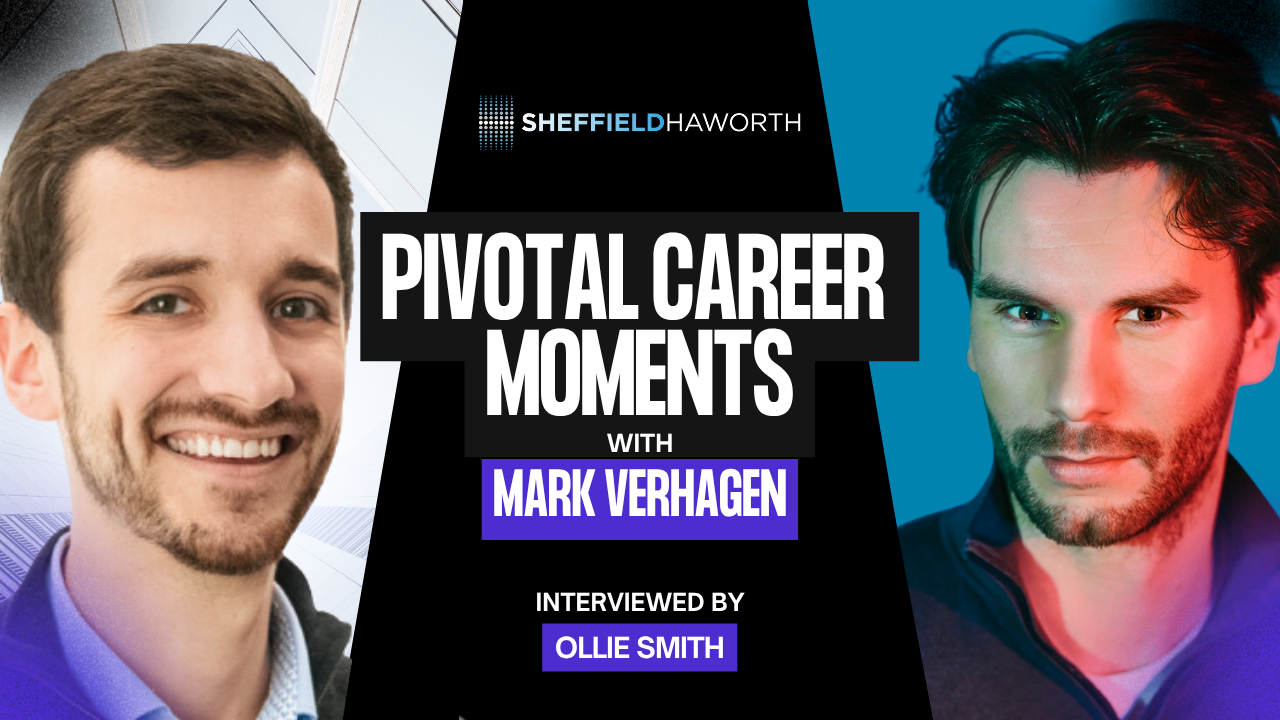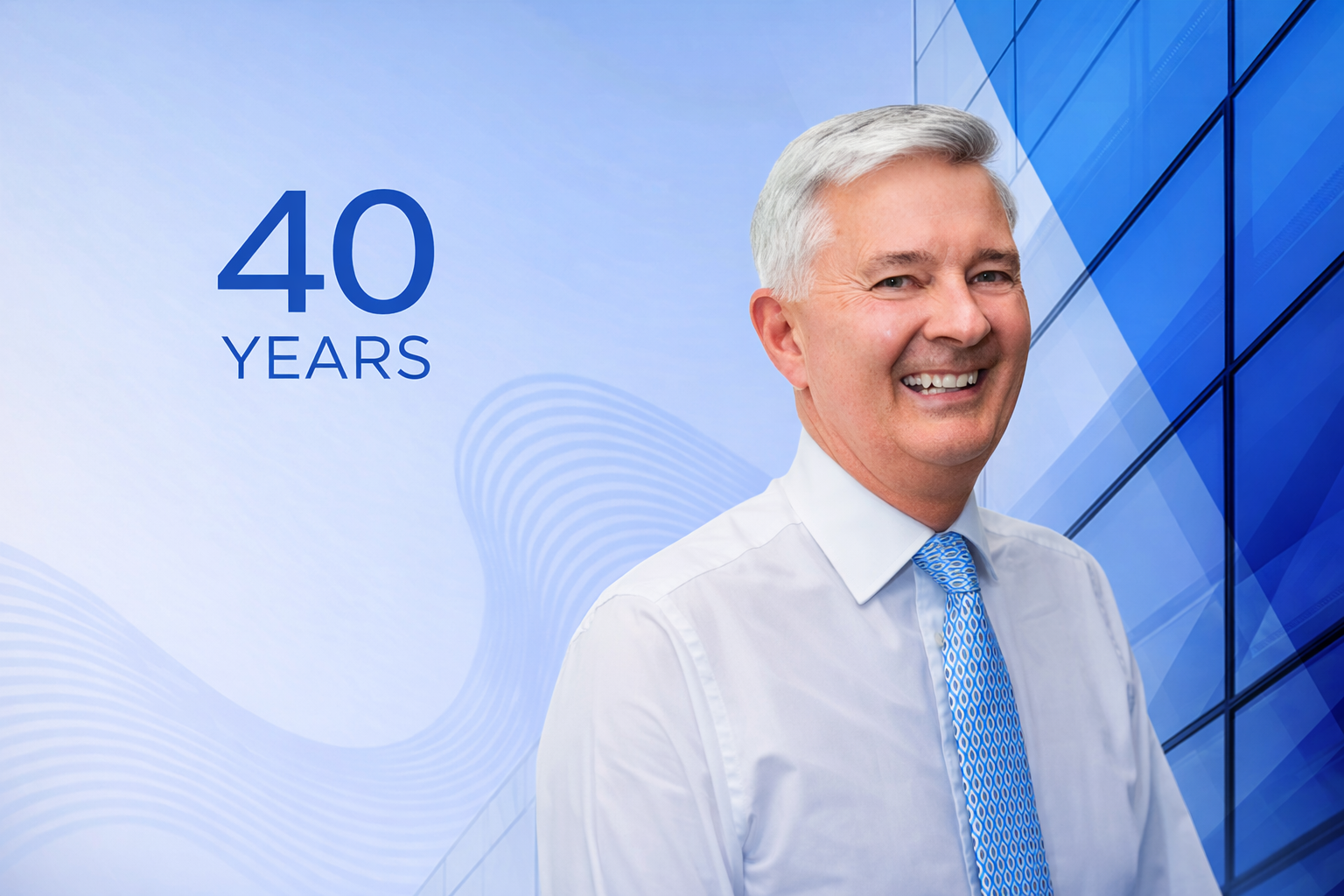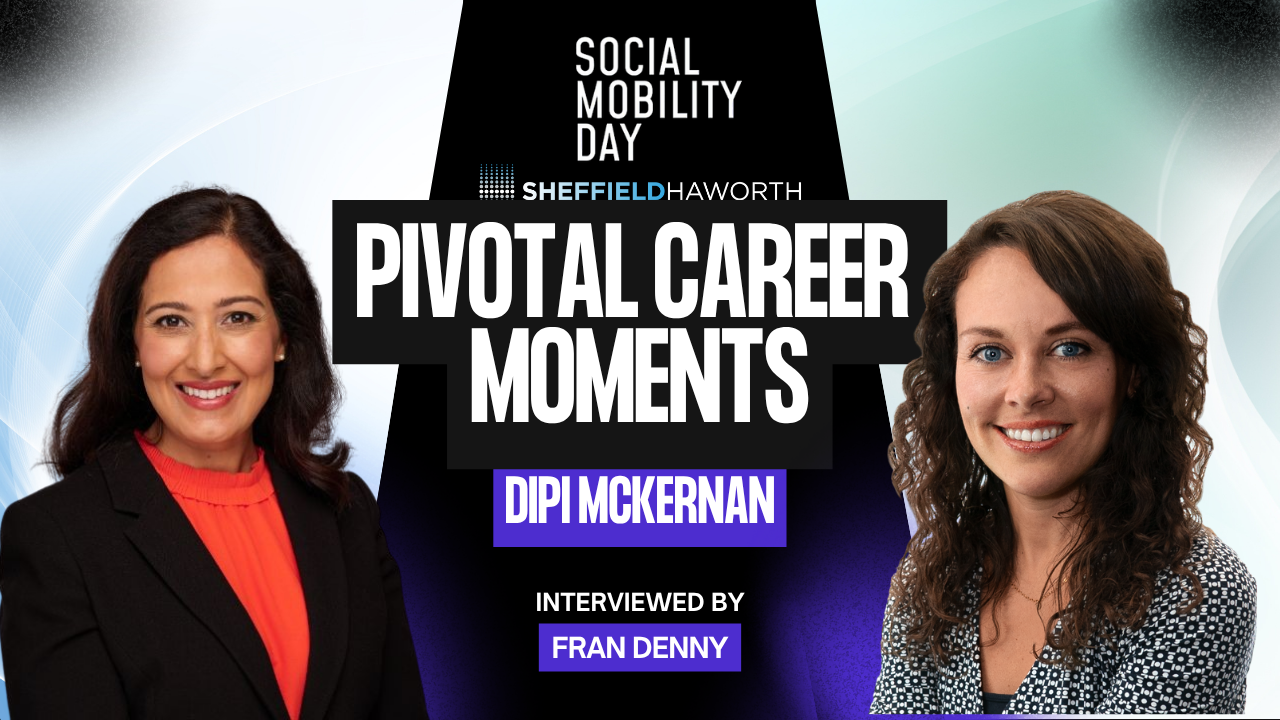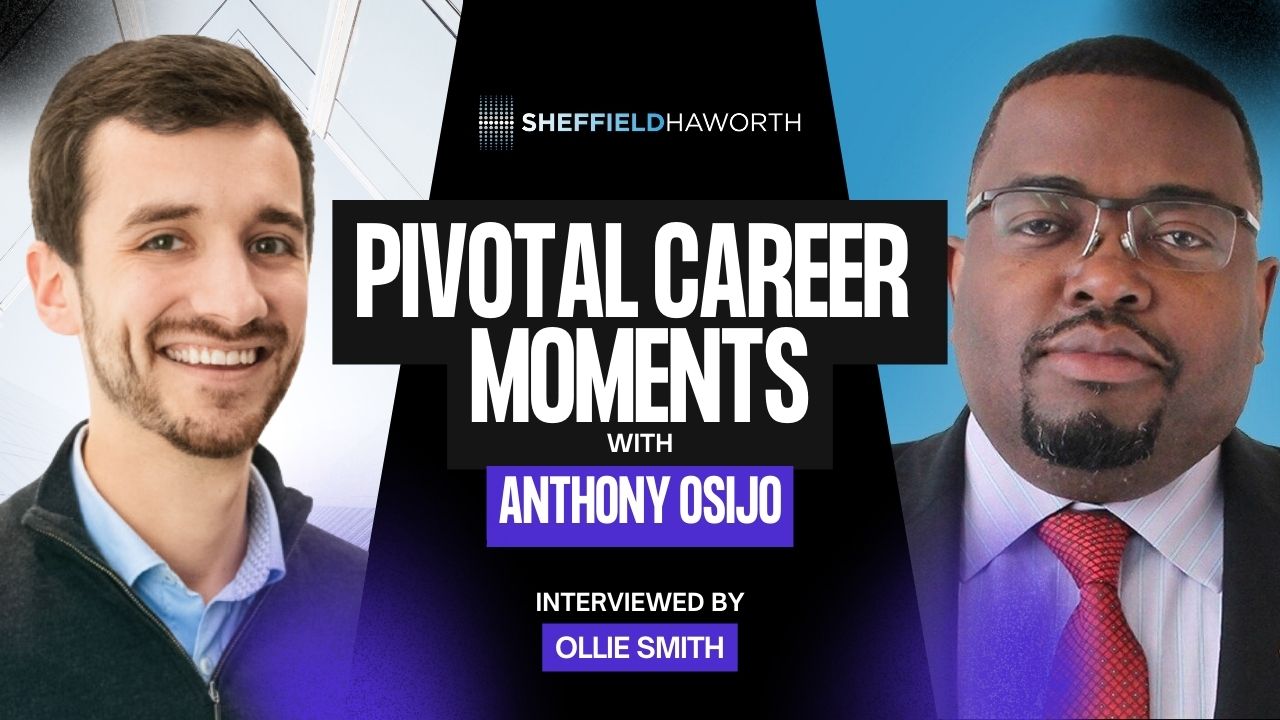Listen to the audio version of this article (generated by AI).
Introduction to the Interview
Welcome to Sheffield Haworth’s Pivotal Career Moments series, where we spotlight the defining milestones and transitions in the careers of prominent industry figures. In this instalment, Ollie Smith, Consultant in our Deep Tech Practice, speaks with Mark Verhagen, CEO and co-founder of RIFT. Mark discusses his technology background, the journey behind RIFT’s breakthrough in industrial heat decarbonisation using Iron Fuel Technology, and shares key insights from his career-defining experiences.
Ollie Smith (Sheffield Haworth):
Welcome, Mark, and thank you for joining us as part of our Pivotal Career Moments interview series. To start, could you briefly introduce RIFT, the technology behind your approach, and what you’re aiming to achieve?
Mark Verhagen:
Absolutely. My background is in chemical engineering and business, and for a long time, I’ve been involved in decarbonising industrial heat. The challenge is clear: today’s industrial processes—whether for food, beverages, steel, or cement—rely heavily on large boiler systems fuelled by coal, oil, or natural gas. These systems account for more than 40% of global CO₂ emissions.
At RIFT, we tackle those emissions head-on by replacing these conventional boilers. Instead of fossil fuels, our customers use “iron fuel”—essentially a combustible iron powder. We supply both the fuel and the boiler system, and when the iron combusts, it produces heat. Then, the resulting iron oxide is captured, regenerated, and processed back into fuel, creating a nearly closed-loop cycle. Our vision is to make industrial decarbonisation practical and economically competitive, aiming by 2050 to reduce CO₂ emissions by 1 Gigaton annually.
Ollie Smith (Sheffield Haworth):
That’s truly innovative. Can you explain where the idea of using iron powder as a fuel originated and how it evolved into a commercial technology?
Mark Verhagen:
The concept isn’t entirely new—it’s been mentioned in historical literature since the 1800s and 1900s. In 2015, a paper even highlighted certain metals as potential energy carriers. From that point, students and academics began experimenting on a small scale, and eventually my co-founder and I became involved around 2019.
We recognised that conventional industrial heat, which still relies on fossil fuels, needed a radical alternative. Initially, I was sceptical because many feasibility studies I had seen dismissed electrification and hydrogen solutions as economically unviable. However, when I reviewed the iron fuel studies, I saw that they addressed the same challenges in a completely different way, which ultimately led to the formation of our team and, eventually, RIFT.
Ollie Smith (Sheffield Haworth):
When you first started working on iron fuel, what was the situation with the iron powder? Was it going to waste before RIFT came along
Mark Verhagen:
Yes, largely so. Traditionally, iron powder was produced from scrap metal and used in markets like the manufacturing of combustion engines—which are now in decline as electric vehicles gain traction. With iron fuel, we’ve found a new, high-impact application for this material that directly contributes to decarbonizing industrial heat.
Ollie Smith (Sheffield Haworth):
Could you tell us more about how the technology works in practice, particularly regarding the recyclability of the iron fuel?
Mark Verhagen:
Certainly. The process is cyclic. We deliver iron fuel—finely powdered iron—to a customer’s boiler. When combusted, this fuel produces heat and forms iron oxide ash. That ash is captured and sent to a production facility where it’s “unrusted” back into iron fuel. The cycle can be repeated more than 100 times with minimal losses. This closed-loop approach not only helps reduce carbon emissions but also offers significant cost advantages over traditional fossil fuels.
Ollie Smith (Sheffield Haworth):
Speaking of cost effectiveness, how does RIFT’s iron fuel compare with fossil fuels like natural gas and oil?
Mark Verhagen:
Our goal is to reach cost parity with fossil fuels. Right now, as we continue developing and scaling our technology, we’re working to be competitive with natural gas and oil. We’re already seeing promising early indicators in select customer groups, and our roadmap aims for competitiveness across the broader market as we scale up.
Ollie Smith (Sheffield Haworth):
I understand the technology isn’t limited to heat generation but could also be applied to electricity generation. Can you elaborate on that?
Mark Verhagen:
Yes, indeed. While our primary focus is on industrial heat applications—especially with our current five-megawatt system modules—the technology can also generate steam for electricity production. The key is producing superheated steam, which is necessary for efficient power generation. Technically, we’re capable of that today, though the current focus remains on industrial heat because it represents the most immediate, practical market with lower technical risks.
Ollie Smith (Sheffield Haworth):
Let’s shift gears a bit toward your career journey. RIFT was founded around 2020. Was there a pivotal moment that inspired you to leave your previous role and start this company?
Mark Verhagen:
Definitely. While I was working on decarbonisation feasibility studies as a student, I witnessed too many promising ideas fail due to economic or technical impracticality. Then, a friend, who is now my co-founder, invited me to join a student team working on iron fuel technology. Initially, I was sceptical and even thought, “If a student team is working on this, something must be off.” But once I reviewed their feasibility studies, I saw real potential. I joined the team the following week.
We then decided to go all in and invest our savings into the firm —it was a pivotal moment. It marked both the start of RIFT and a significant personal career pivot for me.
Ollie Smith (Sheffield Haworth):
It sounds like those early days were full of challenges, especially with limited funding. How long did it take to secure external funding, and what were some of the challenges you faced?
Mark Verhagen:
We launched in 2020 and received our first external funding—a mix of government grants and loans—in 2021. Equity funding followed in 2022, two years after our inception. Working with limited funds forced us to go back to the drawing board repeatedly and focus on validating our economic models before investing heavily in technology development. This lean approach taught us the importance of rigorous financial planning and the value of persevering even when resources are scarce.
Ollie Smith (Sheffield Haworth):
That’s excellent advice for aspiring entrepreneurs. What lessons from those early days would you pass on to others looking to innovate in deep tech?
Mark Verhagen:
In deep tech, the unit economics are everything. Before you start building, validate every assumption in your economic model. This not only builds confidence among potential investors but also ensures you’re ready for the inevitable challenges along the way. Also, work with people who are as driven as you are. The early days are tough, but if you have a strong, resilient team that shares your vision, you’ll be better equipped to navigate the ups and downs.
Ollie Smith (Sheffield Haworth):
You’ve now grown RIFT to a team of around 52 full-time employees, along with a network of specialised contractors. As the company scales, how do you maintain and foster a strong company culture?
Mark Verhagen:
Culture is built from day one. Early on, we sat down as a team and defined our key cultural values, integrating them into performance reviews and every aspect of our work. Maintaining a close-knit, high-trust environment is critical, especially as management becomes more layered with growth. We ensure that our managers are not only technically competent but also true champions of our culture. This rigorous approach to hiring and culture is what keeps the team united and focused on our common goals.
Ollie Smith (Sheffield Haworth):
Looking ahead, what are your plans for scaling RIFT internationally?
Mark Verhagen:
Our immediate focus remains in Europe, with significant traction already in the Netherlands, Germany, and Belgium. However, we’re planning to expand our operations and employee base internationally as well. We aim to deploy our systems across Europe before 2035 and eventually extend into other regions, guided in part by evolving carbon pricing and market opportunities.
Ollie Smith (Sheffield Haworth):
Finally, what advice would you give to anyone considering a similar leap into entrepreneurship?
Mark Verhagen:
Enjoy the ride and be prepared. Entrepreneurship is both more challenging and more rewarding than you might imagine. The best part is working with a team that truly believes in the mission. When you face tough times, it’s that shared determination—“we’re in this together”—that makes all the difference. If you’re ready to fight for your vision and embrace every twist and turn along the way, you’ll find it’s an incredibly fulfilling journey.
In closing:
Thank you, Mark, for sharing your journey, insights, and the passion behind RIFT’s mission. Your story is a compelling example of how pivotal career moments can transform not only an individual’s path but also pave the way for meaningful technological innovation and a greener future.
This interview is part of Sheffield Haworth’s “Pivotal Career Moments” series, where we explore the defining milestones that have shaped the careers of industry leaders. We hope Mark’s insights inspire you to pursue your own transformative journey.
About the Interviewer
Ollie Smith is a Consultant in our Deep Tech Practice, part of the broader Sheffield Haworth Technology Practice. The Pivotal Career Moments series aims to highlight the key milestones and lessons learned by top professionals, offering valuable insights into leadership, resilience, and career progression.















